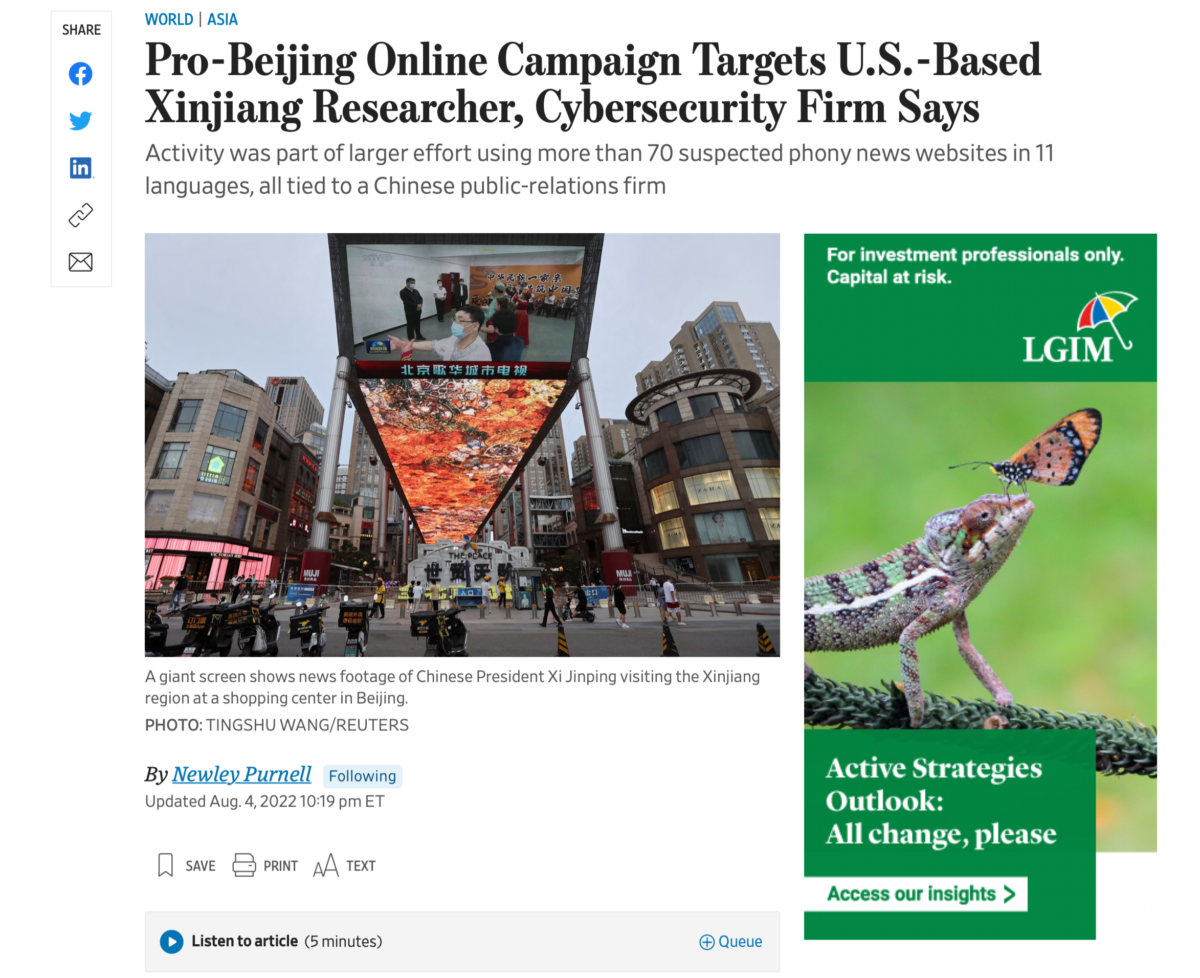The story begins:
Network security company FireEye Inc. is seeing strong demand for its services amid a series of high-profile cyberattacks, and would like to grow more quickly, but is inhibited by a need to satisfy investors, the company’s chief executive said.
“Once you’re public, Wall Street wants to see earnings,” David DeWalt told The Wall Street Journal in an interview Tuesday. The Milpitas, Calif.-based company, which has worked with Sony Pictures and health insurer Anthem Inc. following recent breaches, was founded as NetForts Inc. and went public in 2013.
The company has yet to post a profit, and earlier this month reported a fourth-quarter loss of $105.7 million, despite higher revenue and billings, compared with $2.5 million a year earlier. The company said it has increased spending to expand its customer base. Revenues during the period jumped to $143 million from $57.3 million a year earlier.
“If I had my way, I probably would continue to grow the company much faster than I would produce earnings,” he said. But the company must stay “balanced for cash flow and earnings, reporting and returning to shareholders bottom-line capabilities, as well as top.”
“I liken the analogy to a Maserati that’s got the gas pedal to the floor but it’s in neutral. We’re looking for the gear,” Mr. DeWalt said.
I also wrote a piece re-capping what DeWalt had to say about recent trends in cyber-security:
Nations are fighting for superiority
DeWalt said that “this great domain called cyberspace has created an enormous potential conflict.”
“If you study mankind, it’s had conflict over every new domain that’s been discovered, whether it’s land or ocean or air or space. Whenever there’s a new land discovered we’ve fought wars over it. We’re in a major conflict. It’s been brewing. The gloves have been off a bit the last year or two. We’ve been on the front lines watching it, and it’s probably one of the most interesting times of my career.”
Governments’ goals vary
Each nation has its own reasons for “offensive” cyber activity, DeWalt said.
“It’s well documented that China’s focus has largely been on the enrichment of its own state-owned enterprises. Do we ever watch crime occur for dollars? I’ve never seen a single case of a nation-state attack in China for money. They’re mostly after innovation information. Their modus operandi is to level the playing field through cyber offense.
The U.S. has been very active in monitoring, maybe not for enrichment of commercial operations that are government-owned but for its own geopolitical interests.
Russia has been super money oriented. Do we ever see them sabotage something? Never.
North Korea? Gloves off immediately, try to destroy South Korea as quick as they can. It’s not about money or espionage, just about, kill your neighbor.”
Expect more Sony-like “wipe and release” hacks
The breach of Sony last year marked the “elevation” of cybercrime into “sabotage,” DeWalt said.
“We’ve watched over the last two or three years significant occurrences of just outright destruction. Attempts to really hurt companies or countries with Internet weaponry. You don’t have to wipe out the company. All you have to do is release the information about the company. I think you’ll see a lot more of these wipe and release models, or maybe even just the release model, forget the wipe.”
The Anthem hack shows increasing sophistication
The take-home from the recently announced attack on U.S. health insurer Anthem: cybercriminals are getting seriously sophisticated.
“The layers of cybercrime are reaching new levels. What once was high volume, low dollar amount credit card stealing evolved into the stealing of insider information to gain an advantage in capital markets. And now fraudulent healthcare claims.”


